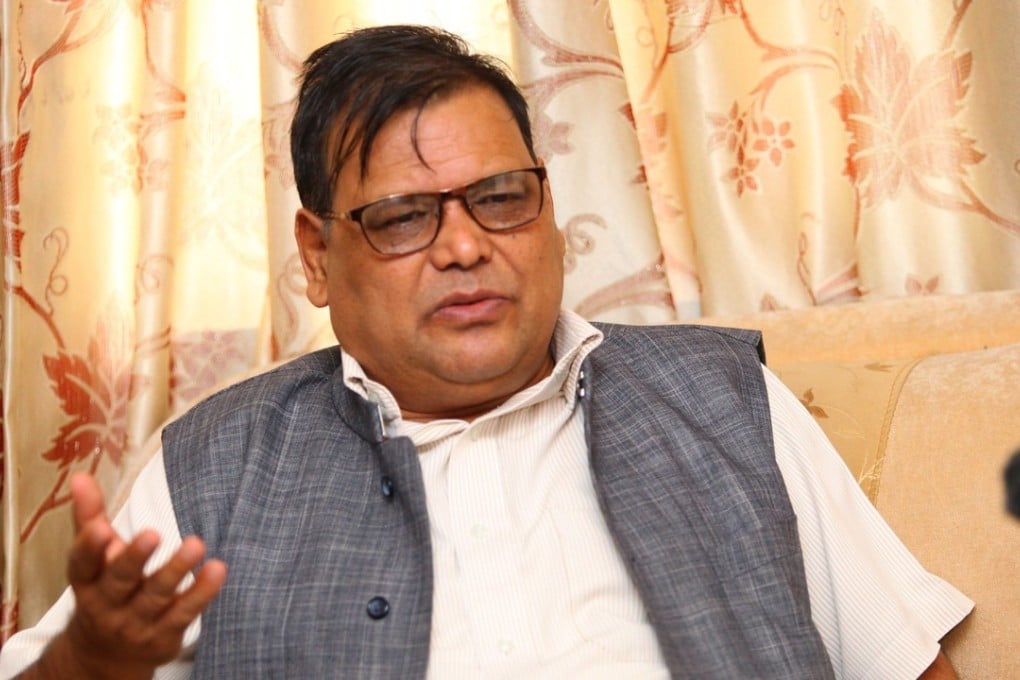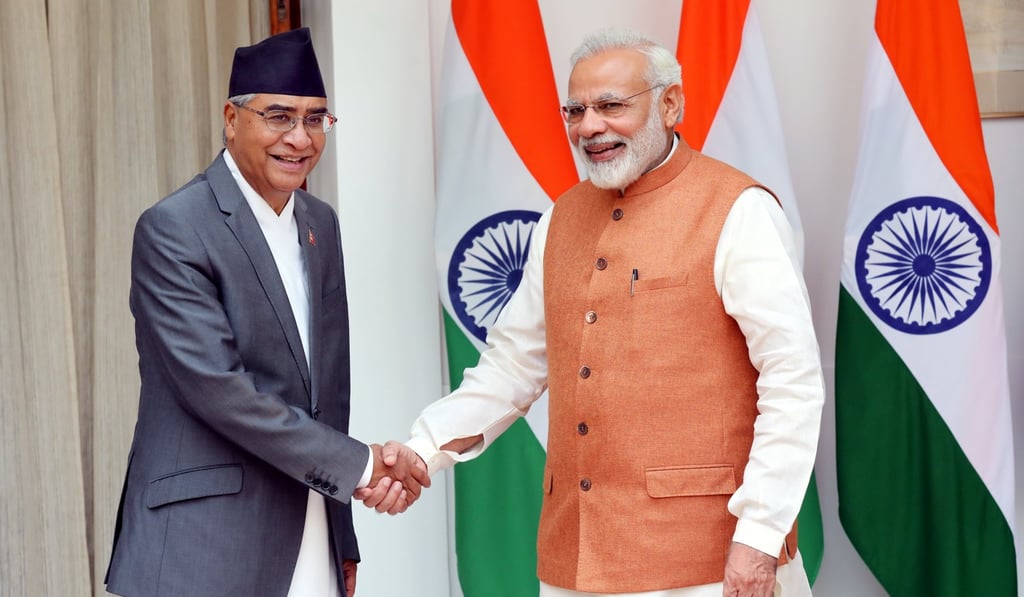Nepal’s ‘balancing act’ continues as deputy prime minister heads for economic talks in Beijing
Trip comes two weeks after Nepalese leader visited New Delhi as nation seeks to keep its giant neighbours on side

Nepal’s deputy prime minister is set to arrive in Beijing on Wednesday evening for a six-day official visit, two weeks after the Nepalese prime minister visited New Delhi.
The visits show the South Asian country is keen to boost economic ties with India and China while also trying to maintain a position of neutrality in disputes between its two giant neighbours.
The visit to Beijing by Krishna Bahadur Mahara, who also serves as foreign minister, follows an official visit to Nepal by Chinese vice-premier Wang Yang last month, during which the two sides signed various deals on energy projects and China pledged a US$1 million humanitarian aid package.

Mahara told Xinhua that the meeting would help to strengthen bilateral economic cooperation through projects under China’s “Belt and Road Initiative”.